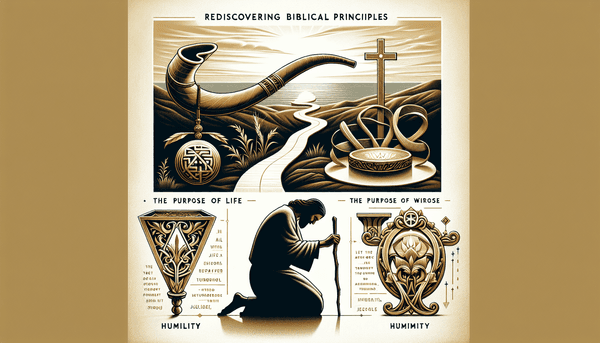The Last Words of Jesus: Reflections on the Cross
The crucifixion of Jesus is a central event in Christian theology, and His last words from the cross are deeply revealing. These moments highlight Jesus' forgiveness, His concern for others, and the fulfillment of Scripture. For instance, His words 'Father, forgive them, for they do not know what they are doing' (Luke 23:34) show His boundless love and offer of redemption. Even in His suffering, Jesus cared for His mother and followers, ensuring their future well-being (John 19:26-27). The fulfillment of Old Testament prophecies, as seen when Jesus declared 'It is finished' (John 19:30), underscores the divine plan of salvation coming to fruition.
Conclusion
The journey through the biblical themes of Jubilee, purpose, humility, and Jesus' final words leads us to a deeper understanding of our faith and its practice. The Year of Jubilee teaches us about God's vision for a just society. Our purpose, rooted in the great commandment, directs us to live lives of love and stewardship. Humility guides us to walk in grace and servitude. Jesus' last words on the cross remind us of His ultimate sacrifice and love for humanity. As we reflect on these scriptural lessons, we are encouraged to embody these truths in our everyday lives, continually seeking to align our actions with God's will. For further exploration of scriptural themes such as the indwelling of the Holy Spirit and the unyielding love of God, consider reading our companion article.
FAQ
Q: What is the Year of Jubilee?
A: The Year of Jubilee is a biblical concept found in Leviticus 25, celebrated every 50 years, where liberty was proclaimed, slaves were freed, lands returned, and debts forgiven, emphasizing social justice and God's sovereignty over the land and people.
Q: What does the Bible say about the purpose of human existence?
A: The Bible teaches that the purpose of human existence is to love God, serve Him, and fulfill His commandments (Ecclesiastes 12:13), as well as to exercise stewardship over the earth (Genesis 1:27) and to live for God's glory (Isaiah 43:7).
Q: How can I practice humility?
A: Practicing humility involves recognizing that all we have comes from God, serving others selflessly (Philippians 2:3), and being open to learning and growth. Jesus' teaching in Matthew 23:12 also encourages us to humble ourselves to be exalted by God.
Q: What significance does Jesus' statement 'I thirst' on the cross have?
A: Jesus' statement 'I thirst' (John 19:28) on the cross highlights His humanity and physical suffering, and it also fulfills the Scriptures, as it echoes the prophecy found in Psalm 69:21, demonstrating that even in His suffering, Jesus was accomplishing God's redemptive plan.






